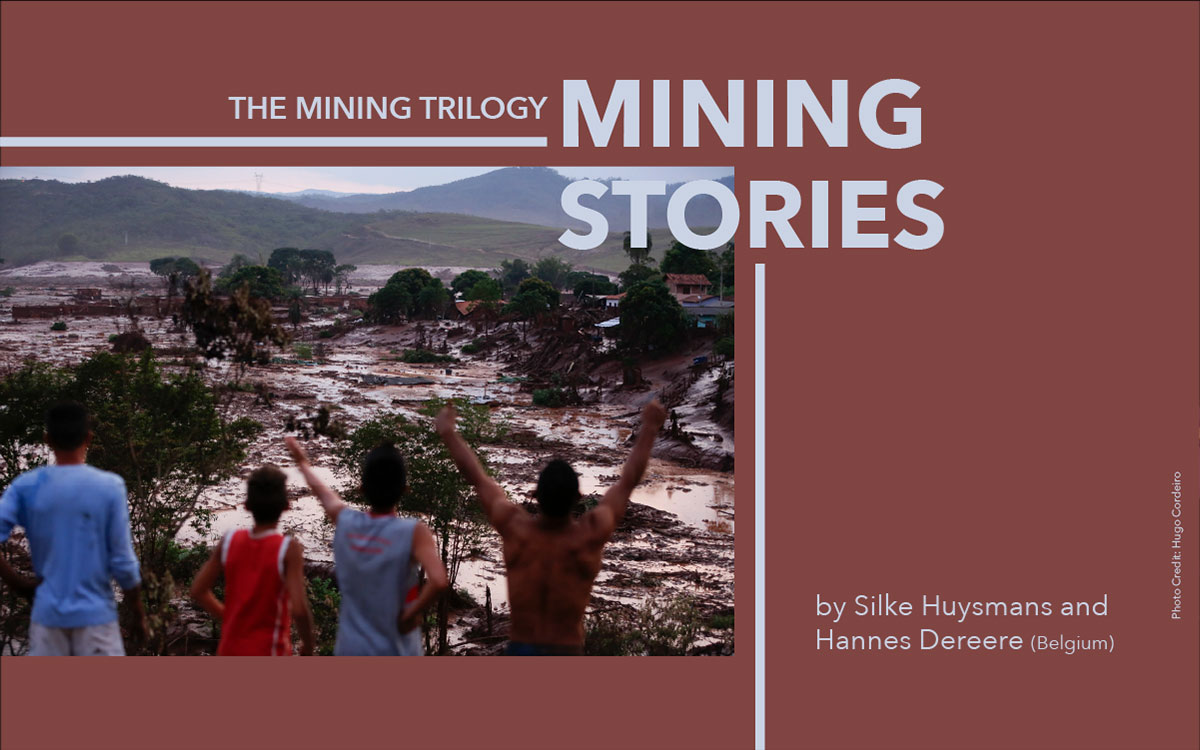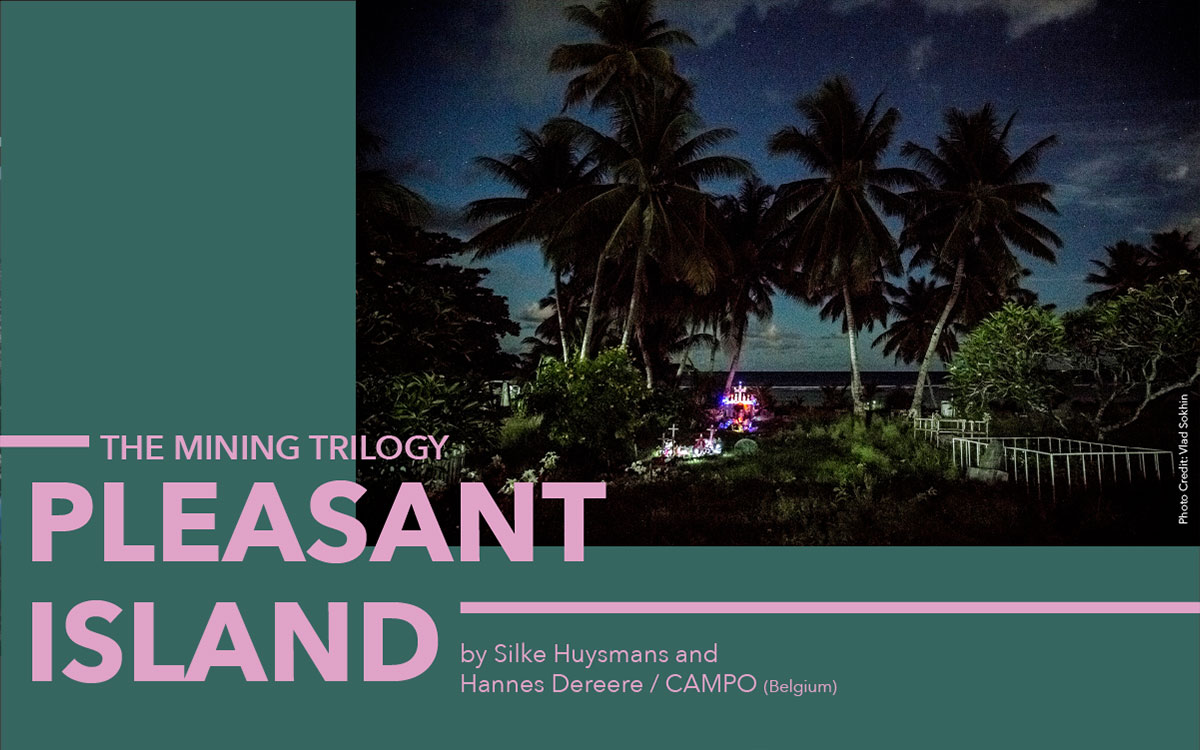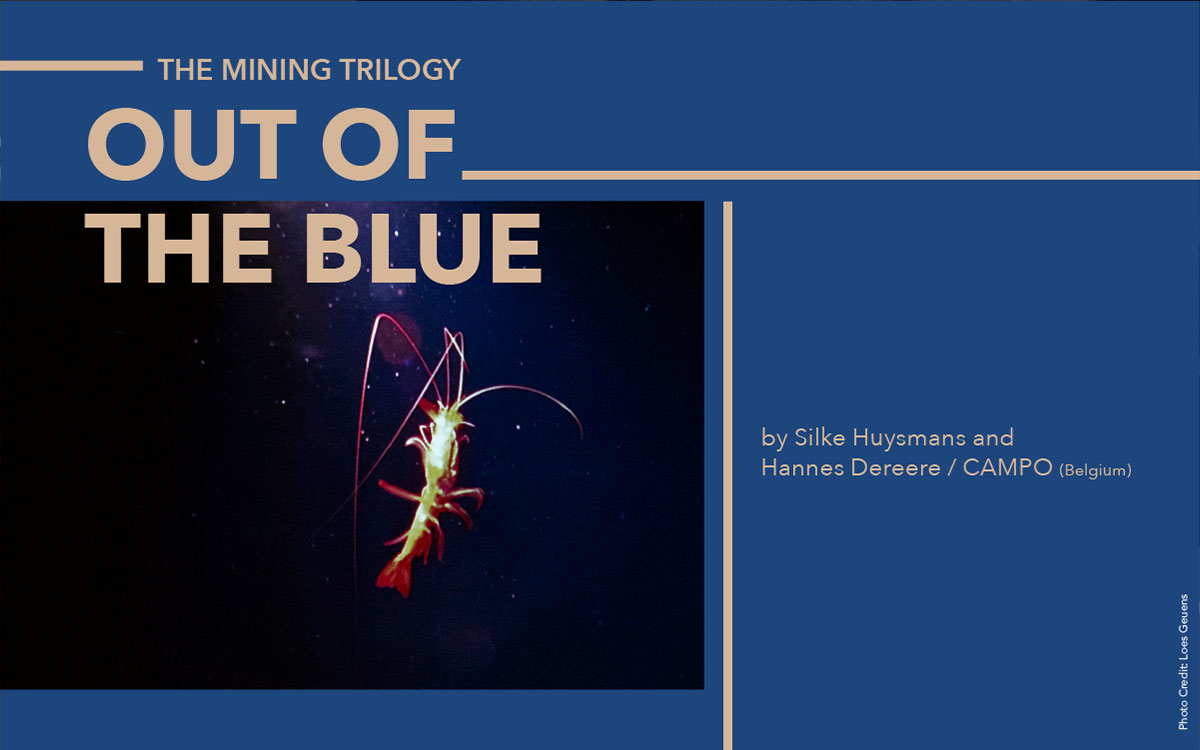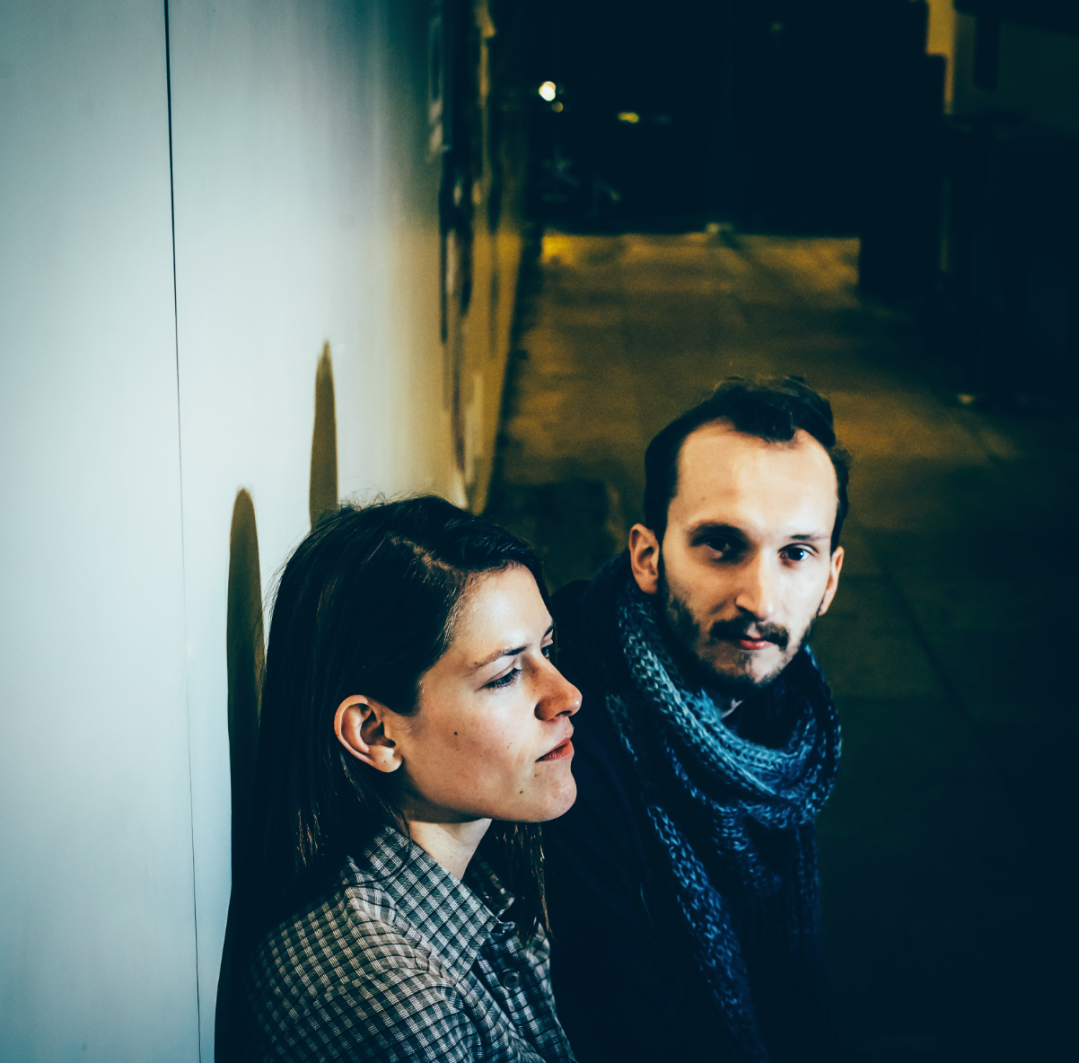
In November 2015, a dam containing toxic mining waste collapsed a few miles away from theatremaker Silke Huysmans’ childhood home in the South of Brazil. Not only did a devastating flood of mud destroy several villages below the dam, but in the next couple of days, poisonous sludge flowed into the river Rio Doce and eventually reached the Atlantic Ocean, causing massive ecological impact and environmental pollution.
Upon learning of the incident, Silke returned to her hometown together with her partner, fellow theatremaker Hannes Dereere, to talk to people affected by the incident and begin to understand just how huge of an impact such a disaster had. Delving even deeper into the incident, the duo returned to Belgium and did additional interviews with experts, including a mining expert, an activism researcher and an economics professor. Together, these conversations then formed Mining Stories, a documentary theatre experience that presents the many perspectives surrounding the incident, and lays bare the ripples of impact from a singular environmental disaster, crossing topics of memory, politics, religion, and storytelling.

“We’ve been working together for a while now, working together on various projects, and eventually, we settled on the idea of ‘documentary theatre’, which we felt was the best way of approaching this topic and presenting all these different points of view,” says Hannes, who will be in Singapore with Silke to present Mining Stories here for the first time, as part of the Esplanade – Theatres on the Bay’s 2023 season of The Studios, themed around land and environment.
“When we learnt of the incident, we already started thinking about how we could create a theatre piece about it, partially because of Silke’s personal link to the site,” adds Hannes. “We wanted to find out the reason behind the incident, and when we began our research, we already encountered so many different narratives as to what had happened, from both the residents and the mining company responsible for it.”

A large part of Mining Stories revolves not only around the destruction of the environment and lives, but on the title’s double meaning of ‘mining for stories’, beyond stories about mining. “The companies behind the incident had this huge PR campaign which encouraged people to look at the story from a different angle,” says Hannes. “So that’s exactly what we’re doing with our work, as we try to understand the complexity of all that has happened and all these people’s different connections to the incident, from the history of the incident to its future, as we bring all these voices together in one show.”
Mining Stories however, does not end there, and as they completed the show, saw that there was yet another incident that happened in Brazil, and realised that the issue of mining stretches worldwide, with far-reaching consequences on a global scale. It is with that in mind that the duo decided to dive even further into mining, expanding Mining Stories into the Mining Trilogy, with two more works (Pleasant Island and Out of the Blue) that will also be presented at The Studios.

“We thought a lot about how mining was literally exhausting the world’s resources, and what would happen if we persisted in doing this without checks and balances,” says Silke. “That’s why we wanted to delve even further into it, and consider the consequences of extracting without limit, and expanding our scope to look at other places in the world.”
In Pleasant Island, Silke and Hannes head to Nauru in Oceania, considered one of the smallest nations in the world that feels the aftereffects of colonisation, capitalism, migration and ecological distress. And in Out of the Blue, Silke and Hannes look towards the future of mining, as they delve into deep sea mining, and how mining companies have exploited the ocean, using satellite to connect to three ships gathered on a remote patch of the Pacific Ocean – one belonging to the Belgian dredging company DEME-GSR; one occupied by an international team of marine biologists and geologists keeping a close watch on the operation; and one containing Greenpeace activists protesting against the mining.
“Looking through the lens of mining, we found that there was plenty of material to discuss issues of sociology and ecology, and that’s how we went on to our second and third pieces, eventually forming The Mining Trilogy,” says Hannes. “Each piece is a separate process of theatremaking, and are connected not by a narrative thread, but in both the subject matter of mining, as well as the idea of the artistic practice of documentary-making and storytelling.”

While one doesn’t have to watch all three performances to appreciate each one, there is value in considering all three as a single body of work. “There are clear links between all three works, with callbacks and an evolution in the presentation across all three, especially in how the first piece is mostly audio and text before we expand that style in the other two works,” says Silke. “You’re watching the process of construction happening before your eyes, where we juxtapose media for effect, from a video of a deep sea mining robot while playing a song alongside it to contribute to the atmosphere. The point is really to ensure that we start discussions through the research we share, and create this personal stake for audience members when they watch it.”
“While we do have a hand in editing what you see onstage, by allowing audience members to see how we go about constructing that narrative, there is a transparency to the process of layering truth upon truth, and how all these different stories can exist at the same time,” says Hannes. “It’s almost like a magician revealing his tricks, or like that parable about the five blind men trying to describe an elephant, where you will only get the whole story once you know all the perspectives and points of view, and then forming a conclusion once you have all the facts.”

Knowing how documentary films aren’t altogether objective though, do Silke and Hannes have an agenda behind framing this research a certain way? “It’s really up to the viewer to make the final call, but we do try to leave each perspective. as clean and real as possible. We are not journalists, we are theatremakers, and we do have a certain freedom to construct our presentation,” says Hannes. “Sometimes we come across a piece that we think will definitely make it into the final product, but eventually doesn’t. Our job is to find things that resonate with each other within the research, and work well when brought together onstage, which we slowly evolve with each subsequent show.”
“The way we present our shows includes both hard information and more emotionally driven extracts, put together via artistic choice, which is compiled from the huge pile of interviews we collect. The process of curating it does create more distance, so we don’t get too involved emotionally, and it takes a lot of trial and error to get it right,” adds Silke. “We do ultimately have a responsibility to tell the story right though, and ensure that there is truth in our presentation and what we put onstage.”

As such a massive undertaking, the project was not without its challenges, but also afforded them unique opportunities as theatre makers. “The interviews we conducted were always with the consent of the interviewees, and those that did agree to speak to us were usually very open; even say mining company DEME-GSR from Out of the Blue were surprisingly forthcoming with their conversations,” says Silke. “We came in as artists, not journalists, and that in itself also allowed us the ability to even go to Nauru to conduct research for Pleasant Island, where media is usually very tightly screened.”
Naturally, where possible, Silke and Hannes have also tried to present the finished products to their interview subjects as well. “We’ve had the interviewees from Out of the Blue come see our show when we went on tour, while for some it was a lot harder, partly because of the pandemic, or just that schedules clashed, and we instead present them video footage of our performance instead,” says Silke. “But we’re happy that those who did manage to see it have had positive reactions and feel their side of the story is told, even if they were on different sides of the fence when it came to whether mining should continue or not.”

And as for the common people? “Sometimes festivals organise post-show dialogues, and you end up having a very rich dialogue when they invite experts from the field to join the conversation, and there is often a lot of talk about what we came to raise – this idea of all these resources around you, and the conversation begins about how much of these we should harvest,” says Silke. “You also get some very interesting points of view sometimes, like how Pleasant Island has links to Japan, where they used to own multiple Pacific Islands back in WWII, and when people learnt that, people started doing their own research to find out more on their own. It’s all these issues that we try to make people aware of in our own humble way – a few years later, mining could even reach outer space, which makes us think much more about our own modes of consumption.”
“While each piece is about a very specific case study, I believe that they’re a means of connecting to bigger, universal themes, whether it’s exploitation or the idea of how easily things are forgotten, or even how we deal with the idea of resource management in the future,” concludes Hannes. “The world is getting smaller, and as far away as these countries may seem, there is a connection to the most unexpected of places, and audiences everywhere will find resonance. We cannot ignore these things that happen on the other side of the world, because there will come a time where we feel their impact.”

Featured image credit: Bart Dewaele
Mining Stories runs from 28th to 29th July, Pleasant Island from 2nd to 3rd August, and Out of the Blue from 5th to 6th August, all at the Esplanade Theatre Studio.
The Studios 2023 runs from July to September 2023 at the Esplanade. Full programme and tickets available here

